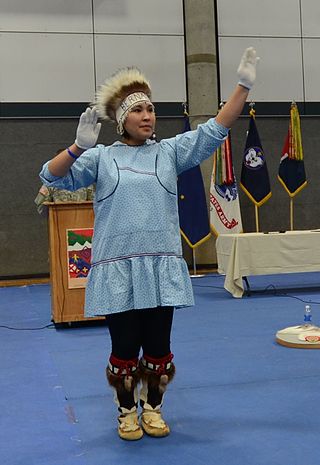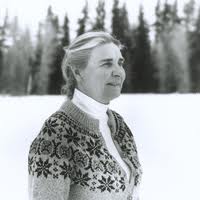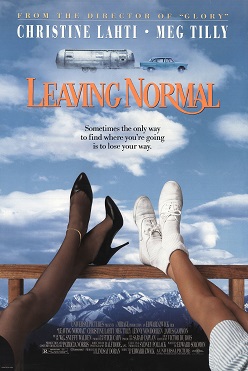Related Research Articles

Alaska is a non-contiguous U.S. state on the northwest extremity of North America. It is in the Western United States region. The only other non-contiguous U.S. state is Hawaii. Alaska is also considered to be the northernmost, westernmost, and easternmost state in the United States. It borders the Canadian territory of Yukon and the province of British Columbia to the east. It shares a western maritime border, in the Bering Strait, with Russia's Chukotka Autonomous Okrug. The Chukchi and Beaufort Seas of the Arctic Ocean lie to the north, and the Pacific Ocean lies to the south. Technically, it is a semi-exclave of the U.S., and is the largest exclave in the world.

From 1732 to 1867, the Russian Empire laid claim to northern Pacific Coast territories in the Americas. Russian colonial possessions in the Americas are collectively known as Russian America. It consisted mostly of present-day Alaska in the United States, but also included the outpost of Fort Ross in California, and three forts in Hawaii, including Russian Fort Elizabeth. Russian Creole settlements were concentrated in Alaska, including the capital, New Archangel, which is now Sitka.

The Arctic National Wildlife Refuge or Arctic Refuge is a national wildlife refuge in northeastern Alaska, United States, on traditional Iñupiaq and Gwich'in lands. The refuge is 19,286,722 acres (78,050.59 km2) of the Alaska North Slope region, with a northern coastline and vast inland forest, taiga, and tundra regions. ANWR is the largest national wildlife refuge in the country, slightly larger than the Yukon Delta National Wildlife Refuge. The refuge is administered from offices in Fairbanks. ANWR is home to a diverse range of endemic mammal species; notably, it is one of the few North American locations with all three endemic American bears—the polar bear, grizzly bear, and American black bear, each of which resides predominantly in its own ecological niche. Besides the bears, other mammal species include the moose, caribou, wolves, red and Arctic fox, Canada lynx, wolverine, pine marten, American beaver, and North American river otter. Further inland, mountain goats may be seen near the slope. Hundreds of species of migratory birds visit the refuge yearly, and it is a vital, protected breeding location for them. Snow geese, eiders and snowy owls may be observed as well.

The Tongass National Forest in Southeast Alaska is the largest U.S. National Forest at 16.7 million acres. Most of its area is temperate rain forest and is remote enough to be home to many species of endangered and rare flora and fauna. The Tongass, which is managed by the United States Forest Service, encompasses islands of the Alexander Archipelago, fjords and glaciers, and peaks of the Coast Mountains. An international border with Canada runs along the crest of the Boundary Ranges of the Coast Mountains. The forest is administered from Forest Service offices in Ketchikan. There are local ranger district offices located in Craig, Hoonah, Juneau, Ketchikan, Petersburg, Sitka, Thorne Bay, Wrangell, and Yakutat.

Alaska Natives are the Indigenous peoples of Alaska and include Alaskan Creoles, Iñupiat, Yupik, Aleut, Eyak, Tlingit, Haida, Tsimshian, and a number of Northern Athabaskan cultures. They are often defined by their language groups. Many Alaska Natives are enrolled in federally recognized Alaska Native tribal entities, who in turn belong to 13 Alaska Native Regional Corporations, who administer land and financial claims.

The Alaska boundary dispute was a territorial dispute between the United States and the United Kingdom of Great Britain and Ireland, which then controlled Canada's foreign relations. It was resolved by arbitration in 1903. The dispute had existed between the Russian Empire and Britain since 1821, and was inherited by the United States as a consequence of the Alaska Purchase in 1867. The final resolution favored the American position, as Canada did not get an all-Canadian outlet from the Yukon gold fields to the sea. The disappointment and anger in Canada was directed less at the United States, and more at the British government for betraying Canadian interests in favor of healthier Anglo-American relations.

Gates of the Arctic National Park and Preserve is a national park of the United States that protects portions of the Brooks Range in northern Alaska. The park is the northernmost national park in the United States, situated entirely north of the Arctic Circle. The area of the park and preserve is the second largest in the U.S. at 8,472,506 acres ; the National Park portion is the second largest in the U.S., after the National Park portion of Wrangell–St. Elias National Park and Preserve.

Klondike Gold Rush National Historical Park is a national historical park operated by the National Park Service that seeks to commemorate the Klondike Gold Rush of the late 1890s. Though the gold fields that were the ultimate goal of the stampeders lay in the Yukon Territory, the park comprises staging areas for the trek there and the routes leading in its direction. There are four units, including three in Municipality of Skagway Borough, Alaska and a fourth in the Pioneer Square National Historic District in Seattle, Washington.

The history of Alaska dates back to the Upper Paleolithic period, when foraging groups crossed the Bering land bridge into what is now western Alaska. At the time of European contact by the Russian explorers, the area was populated by Alaska Native groups. The name "Alaska" derives from the Aleut word Alaxsxaq, meaning "mainland".

The question of whether to drill for oil in the Arctic National Wildlife Refuge (ANWR) has been an ongoing political controversy in the United States since 1977. As of 2017, Republicans have attempted to allow drilling in ANWR almost fifty times, finally being successful with the passage of the Tax Cuts and Jobs Act of 2017.

Robert Christian Boes Hansen, popularly known as the Butcher Baker, was an American serial killer active in Anchorage, Alaska, between 1972 and 1983. Hansen abducted, raped and murdered at least seventeen women. Many of the women abducted were released by Hansen into the wilderness and hunted with a Ruger Mini-14 and hunting knives. Hansen was captured in 1983 and sentenced to 461 years' imprisonment without the possibility of parole. He died in 2014 of natural causes at age 75.

Montague Island (Sugpiaq: Suklluurniilnguq) lies in the Gulf of Alaska at the entrance to Prince William Sound, Alaska. The island has a land area of 790.88 km2, making it the 26th largest island in the United States. As of the 2000 census, Montague did not have a permanent resident population, making it at that time the largest uninhabited island in the United States. Since then, the 2010 abandonment of the United States Coast Guard station on Attu Island in the Aleutian Islands, which at 892.8 km2 is larger than Montague Island, causes Attu to claim that title. Montague Island was named by Captain James Cook in honor of John Montagu, 4th Earl of Sandwich, one of his greatest supporters.

Celia Hunter was an American conservationist and advocate for wilderness protection in her home state of Alaska. She was conferred the highest award by the Sierra Club, The John Muir Award, in 1991. She was presented the highest award by the Wilderness Society, The Robert Marshall Award, in 1998.
John Meade Haines was an American poet and educator who had served as the poet laureate of Alaska. Published in 2024, the book May the Owl Call Again, A Return to Poet John Meade Haines, 1924-2011 focuses on the last 2 years of the poet’s life. With 32 poems, 5 essays, and 2 Letters to the Editor, it is an intimate correspondence of words, writings, and letters with reflections on life, death, and friendship.

William James Allen was an American businessman who was the CEO of the Alaska oilfield services company VECO Corporation. VECO was an Alaska-based oil pipeline service and construction company founded by Wayne Veltri. Bill Allen was born in Socorro, New Mexico, and at the age of 16 left for the oil fields of Alaska to become a welder to help support his family. VECO began as a one-truck welding and repair operation that grew to become a major player in the Alaskan and worldwide oil industries' support services business. He built a for-profit prison in Barbados as well. VECO also was a worldwide player in the oil industry, having divisions in many major oil markets, including Sudan, Russia, Mexico, Venezuela, and Syria. VECO had a major impact on the economy of Alaska and employed over 5,000 people worldwide. Allen was later prosecuted for sexually assaulting minors, a crime he had been protected from prior after lying under oath during Ted Stevens's corruption trial, costing the Senator re-election in 2008.

Leaving Normal is a 1992 American comedy-drama road film directed by Edward Zwick and starring Christine Lahti and Meg Tilly. Written by Ed Solomon, the film is about the cross country adventure of two women and the hardships and characters they encounter.
Eowyn Ivey is an American author based in Alaska. She was a finalist for the Pulitzer Prize for Fiction in 2013 for her debut novel The Snow Child.
In an effort to thwart statehood and Alaskan home rule from Washington D.C., the Alaska Syndicate, was formed in 1906 by J. P. Morgan and Simon Guggenheim. The Syndicate purchased the Kennicott-Bonanza copper mine and had majority control of the Alaskan steamship and rail transportation. The syndicate also was in charge of a large part of the salmon industry.

Alaskan Bush People is an American docudrama-style reality television series that follows the Brown family in an attempt to survive in the wilderness, detached from modern society. The series premiered on the Discovery Channel on May 6, 2014. Filmed on location in Alaska near Copper Center, Hoonah, and Chichagof Island, with later seasons filmed on location in Okanogan County, Washington, it follows the extended Brown family's life. Although purportedly a genuine reality TV show, it has been criticized for being scripted and/or fake.
Bella Hammond was an American activist and commercial fisherman. Hammond served as the First Lady of Alaska from 1974 until 1982 during the tenure of her husband, former Governor Jay Hammond. She was the first person of Alaska Native descent to reside in the Alaska Governor's Mansion.
References
- ↑ "Duane and Rena Ose leave Alaskan wilderness life behind".
- ↑ "BBC Two airing Alaskan adventure with roots in west central Minnesota". West Central Tribune. 24 January 2020.
- ↑ Smith, Julia Llewellyn. "Reality TV turns into horror story for Britons who won a lodge in Alaska". The Times.